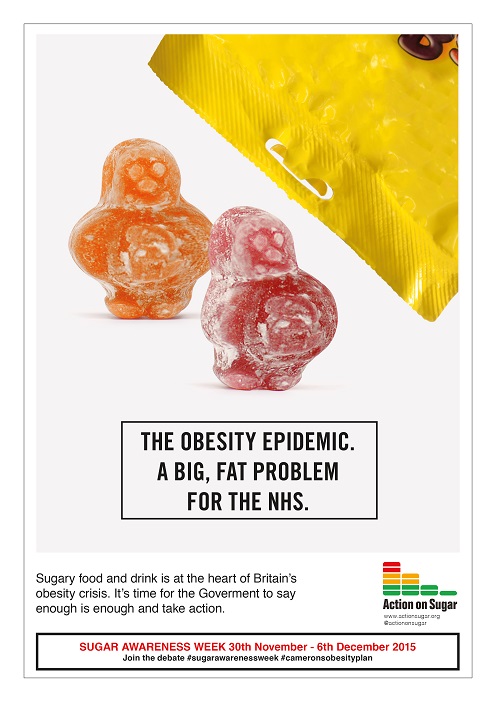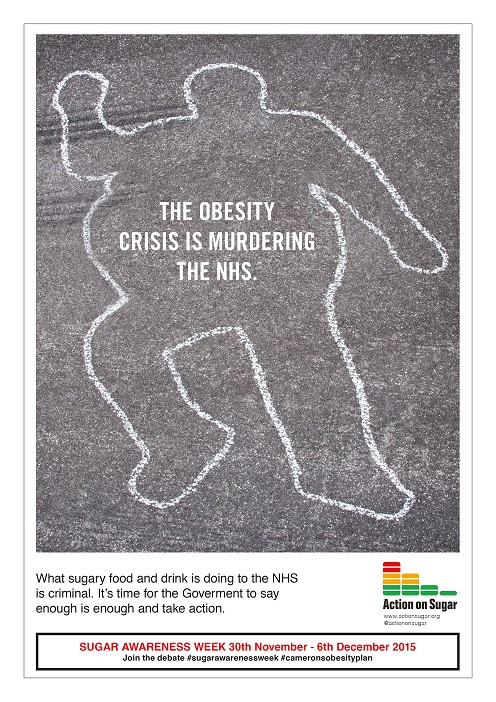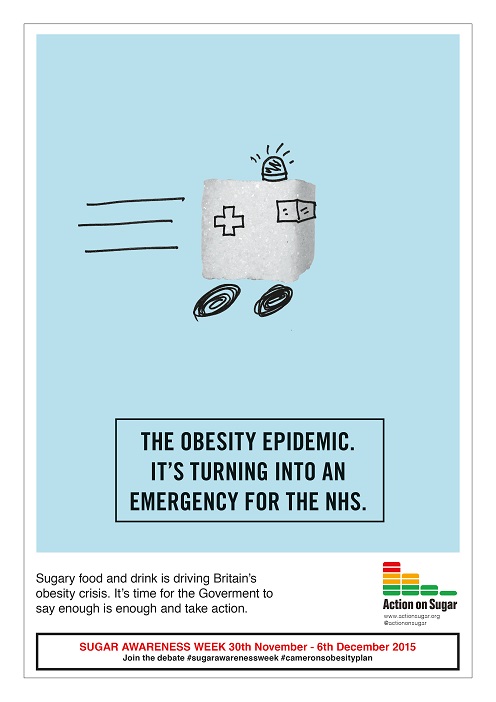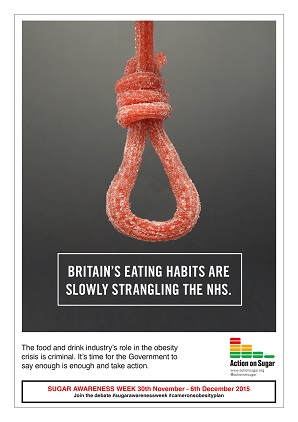This first Sugar Awareness Week, being run by action on sugar, included a reception at the House of Commons yesterday, Wednesday 2nd December, hosted by Geraint Davies MP. The reception was attended by over 100 MPs, NGOs and members of the food industry, all sharing a common interest in sugar reduction, where we were delighted to be invited.
Speeches were made by Geraint Davies MP, the Labour Co-operative Member of Parliament for Swansea West, Dr Alison Tedstone, Director of Diet & Obesity, Public Health England, Tim Smith, Group Quality Director, TESCO, Andrew Opie, Director of Food & Sustainability, British Retail Consortium, and Chairman of Action on Sugar, Professor Graham MacGregor.
Several organisations were in attendance with exhibition stands including the Co-op, Sainsbury’s, Waitrose, Change 4 Life, and Children’s Health Fund amongst others.
The key focus was on the obesity epidemic, the related NHS crisis and action on sugars newly proposed comprehensive approach to preventing obesity and type 2 diabetes in the UK. This has been summarised in their six evidence-based essential actions. This plan has already been submitted to Cameron boldly calling it “Cameron’s plan”. In the words of Professor Graham MacGregor, it is in anticipation that Cameron will have the guts to incorporate it into his forthcoming obesity strategy.
The six evidence-based essential actions:
- Reformulation of sugar and fat in foods and drinks*.
- 50% reduction in sugar content within the next 5 years, starting immediately with sugar-sweetened soft drinks.
- 20% reduction in fat, especially saturated fat, within the next 5 years.
- Stop promotions of unhealthy food & drink*.
- Prevent all types of marketing of unhealthy food and drink to children and adolescents.
- A 20% duty on all sugar-sweetened soft drinks and confectionary, to escalate thereafter if companies do not comply to reformulation targets.
- All public sector food must meet strict guidelines*.
- Uniform colour-coded labelling to be present on all foods for retail and out-of-home, with stricter criteria for high salt, sugars, fat and calories.* (NB sugars as free sugars not total sugars)
* Actions 1, 2, 5 and 6 can only be done by an independent agency e.g. the previous Food Standards Agency or similar. It is action on sugars strong belief that The Department of Health, with the Responsibility Deal, have failed both in its salt and calorie reduction policies. They therefore deem it essential to have an independent (but government-funded) agency who can carry out implementation, thorough monitoring with regulation and enforcement if necessary. Further details on these actions can be found at the web link below.
The adverts highlighted below were developed for this awareness week.




Some key points made by speakers:
Dr Alison Tedstone, Director of Diet & Obesity, Public Health England
- The UK is the first country to recommend no more than 5% of energy as sugar.
- Today, 30% children have tooth decay – we have shameful health stats including obesity which urgently needs to be addressed.
- Part of all this means that sugary drinks should form no part of a children’s diet.
- PHE has carefully analysed the data to determine what action the UK needs to take to reduce sugar intake to come out with their sugar reduction report – evidence for action. While Dr Tedstone highlighted that multiple actions need to be taken she focused on the urgent need to change advertising regulations:
- 40% of the food we buy in the UK is bought on promotion. It’s not neutral. It’s making families buy 1/5th more than they would otherwise buy. It impacts on calorie intake and the balanced diet. Promotions of unhealthy foods should stop.
- Advertising of unhealthy foods in all channels is not neutral. It affects dietary balance and drives towards unhealthy and excessive intakes.
- PHE have advised on the adaptive model with regards to sweeteners recognising that some people will not be able to reduce their likeness for sweet drastically.
Tim Smith, Group Quality Director, TESCO
- TESCOs challenge is to make it easier for the shopper to eat healthier but not compromise on taste.
- Their customers don’t want to be told what to do.
- Small achievable changes are the way to go.
- TESCO has achieved a lot already.
- There are 300,000 employees at TESCO who are taking part in driving healthy eating within.
- They run the Eat Happy Project where 1 million kids have been actively involved.
- The cornerstone has been reformulation.
- 4,000 products over 4 years have been reformulated where the average TESCO customer is consuming 20% less sugar than they were 4 years ago.
- Technical problems are much less than with salt. It’s more about needing the will but we have a business wide commitment on this.
- TESCO are neutral on sugar tax. They will leave it to others to decide.
Andrew Opie, Director of Food and Sustainability, British Retail Consortium
- Retail has achieved a lot already in terms of reformulation. The way has been paved and there continues to be a big focus on sugar alongside fat and salt. There is a lot of experience amongst members.
- We now need reformulation targets to be mandatory. There needs to be a universal adoption. Retailers have led the way in the past and not all in industry have followed. So the bolder companies have sometimes been penalised. This applies critically to key categories that contribute excessively to children’s diets.
Prof Graham MacGregor, Chairman of Action on Sugar
- Action on sugar was set up two years ago and has received a lot of support.
- One year ago they presented a plan to Jeremy Hunt who did nothing.
- This time around Cameron needs to come out with a strong plan to reduce obesity and diabetes.
- Reformulation is key in their recommendations.
- Action on sugar also recommends reducing the sweetness of artificial products to get the population used to less sugar.
- Fat is also highlighted as also important. We need to reduce saturated fat intake and as part of this reduce use of palm oil.
- Action on sugar wants a sugar tax but recognises that in itself, it may not be effective. The income generation and the halo effect however may be important.
In the Q&A session there was some discussion about the call to put teaspoons of sugar on pack. PHE response was that there needed to be more research into how this would be received and utilised. Some suggested that this would purely be for the worried well and therefore not worth the cost.
It was extremely helpful to attend the reception, hear the talks and share experiences with all concerned about sugar intake. It’s been useful to consider action on sugar and public health England’s plans together. We are already incorporating new actions into the various sugar reduction projects that we are involved in. It’s certainly challenging yet very exciting times for both public health and business where creativity and credibility will be key. In the meantime we keenly await “Cameron’s plan” and hopefully in early 2016.
http://www.actiononsugar.org/sugar-awareness-week/Sugar%20Awareness%20Week%202015/167198.html
https://www.gov.uk/government/publications/sugar-reduction-from-evidence-into-action

